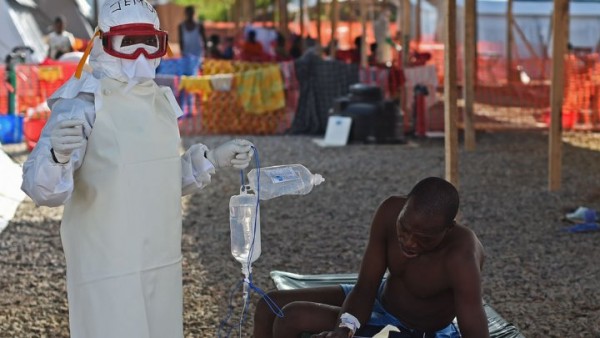

Ten months after the first cases of Ebola were confirmed in West Africa, the outbreak is showing signs that it may finally be losing steam. For the first time since June 2014, fewer than 100 new Ebola infections were reported in the week ended Jan. 25, the World Health Organization said Thursday.
Health officials have indicated they will now turn their attention toward eradicating the deadly and highly infectious disease, including incinerating the very facilities that helped control the epidemic. Still, the WHO said that this is no reason for the global community to become complacent in the efforts to contain and eliminate the disease.
“The response to the [Ebola] epidemic has now moved to a second phase, as the focus shifts from slowing transmission to ending the epidemic,” the WHO said in a statement. “To achieve this goal as quickly as possible, efforts have moved from rapidly building infrastructure to ensuring that capacity for case finding, case management, safe burials, and community engagement is used as effectively as possible.”
New cases of the virus continue to drop in Liberia and Sierra Leone, two of the countries hit the hardest by the outbreak. Liberia reported just four new cases last week and only 20 in the past three weeks, according to the WHO. Meanwhile, sixty-five new cases were confirmed in Sierra Leone last week — a significant drop from 117 new cases the previous week and 184 the week before that.
In Guinea, however, cases increased slightly to 30, up from 20 new cases the week before. The western district of Forecariah — where the local community has shown high levels of resistance to measures to limit the disease’s spread — was the worst-affected in Guinea, with half the new cases for the week, the report said. The northern district of Mali, which borders Senegal, reported its first confirmed case in the outbreak — an unsettling finding, said the WHO.
For the first time since it opened in August, Liberia’s 120-bed Ebola unit, the largest of its kind ever built, sat empty, according to the Agence France-Presse. Last year, the center, called ELWA-3, treated more than 1,800 Ebola patients. Less than a third of them survived. The emergency treatment center is now in the process of being dismantled and incinerated.
Health officials have said the relative calm situation in recent days has allowed them to consider the successes and failures of their containment efforts. “This decline is an opportunity to focus efforts on addressing the serious weaknesses that remain in the response,” Brice de le Vingne, the director of operations of Doctors Without Borders, told the AFP. The health organization spearheaded Ebola treatment efforts in Liberia. “We are on the right track, but reaching zero cases will be difficult unless significant improvements are made in alerting new cases and tracing those who have been in contact with them,” he said.
Health experts have said that preventing another Ebola outbreak will require investment in critical health infrastructure that has long been lacking in the region, which struggles with high rates of poverty. Some have argued that had such health care systems been in place to begin with, last year’s epidemic likely wouldn’t have reached the level that it did.
Ebola flare-ups
While the news out of West Africa is encouraging, health officials have urged the international community not to assume that the outbreak is under control. Even with the recent drop in cases, there are still troubling signs that the epidemic may be far from over. “The number of cases is decreasing week by week and getting to zero in many places…but we still see occasional flare-ups and we still see some surprises with new cases out of our contact lists,” David Nabarro, the senior UN coordinator for Ebola, said Thursday.
Earlier this week, the Red Cross issued a similar warning that the virus is still “flaring up” in new areas and said not all cases are being reported. “We are also seeing that in places like Sierra Leone and especially in Guinea that it is flaring up in new districts all the time, with small new chains of transmission, which means that it’s not under control and it could flare up big-time again,” said Birte Hald, who leads the Ebola coordination and support unit of the International Federation of Red Cross and Red Crescent Societies. “I think that we should consider ourselves lucky and fortunate if we are able to stop it in 2015.”
Mutating virus
MEDAX MEDIA



